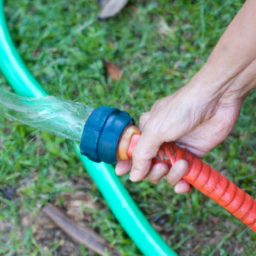Increase Water Pressure Garden Hose How-To
How To Increase Water Pressure In Garden Hose
How To Increase Water Pressure In Garden Hose: An Exhaustive Exploration
Is Low Water Pressure In Garden Hose Common?
Water pressure in garden hoses is a common problem. Many gardeners find the need to increase their water pressure due to age-related wear and tear on the hose, blockage of the water itself, blocked valves, or hard-water minerals that build up in the hose line. Whatever the cause of the low water pressure, there are some simple solutions to get the water flowing freely again.
Can Hose Length Affect Water Pressure?
Hose length can certainly affect the water pressure in a garden hose. The longer the hose, the greater the pressure drop. This is caused by friction occurring between the inner walls of the hose and the water making its way through.
What If The Hose Has Bent?
If you find that the hose has been bent or is kinked, this can also be a cause of low water pressure. A bent hose can cause an obstruction in the water flow, which causes a decrease in water pressure. To remedy this issue, simply replace or straighten out the affected area of the hose.
How To Increase Water Pressure In Garden Hose?
Check The Nozzle And Sprayer
The first step to increasing the water pressure in a garden hose is to check the nozzle and sprayer. Make sure the sprayer is not blocked or clogged with dirt or debris, which can restrict the water flow and reduce pressure. Also check the nozzle for wear and tear, as holes on the nozzle can reduce the pressure as the water escapes.
Check The Valves
The valves in a hose can also reduce the water pressure if they are blocked or not functioning properly. This occurs when sediment builds up in the valves or when the washers in the valves wear down. To increase the water pressure, make sure to clean any sediment from the valves or replace the worn washers.
Assess The Environment
It is also important to check the surroundings when dealing with a low water pressure. If the area near the hose is filled with plants or shrubbery, this can reduce the water pressure as the water struggles to work its way through the foliage. Make sure to clear away any foliage that may be restricting the water flow.
Increase The Flow
The most common way to increase water pressure in a garden hose is to increase the flow. This can be done by adding a pressure-regulating device to the end of the hose or by installing a larger diameter hose. Pressure-regulating devices can be purchased at most home improvement stores, while larger diameter hoses are available online or in hardware stores.
Insights
Low water pressure in a garden hose can be caused by a number of issues, such as aged hoses, blockages, and even environmental factors. The good news is that these issues are easy to address, and the water pressure can be increased with some simple steps. Whether it's by cleaning the nozzle or installing a pressure-regulating device, there are measures you can take to ensure your garden hose is working optimally.

Previous Page
Next Page
